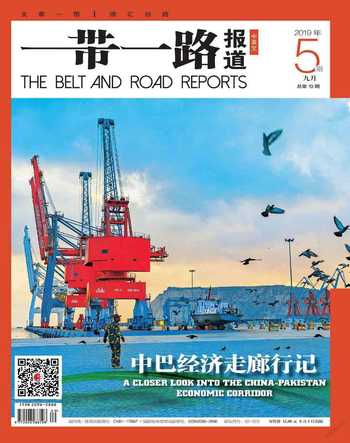China’s education experience offers valuable lessons
Serigne Mbaye Thiam
In September 2018, Senegal’s President Macky Sall, stood beside Chinese President Xi Jinping at the 2018 Forum on China- Africa Cooperation (FOCAC) to support the adoption of the Beijing Declaration Toward an Even Stronger China-Africa Community with a Shared Future. Senegal was proud to co-chair the FOCAC with China, a country that has, for a number of years, demonstrated its capacity to act with increasing dynamism as a true development partner for the African continent.
Senegal’s robust economic growth and stable political system make it a highly attractive destination for Chinese investment, and the country takes a positive view of China’s role in Africa and welcomes China’s involvement not just in infrastructure financing, but in fields as diverse as tourism, medical cooperation and support for Senegal’s manufacturing industry. Senegal was the first West African country to formalize its cooperation with China under the Belt and Road Initiative, signing an agreement during Xi’s visit last year.
Education is recognized around the world as a universal good that is essential for the economic and social prosperity of nations. Today, the importance of education is enshrined in the Sustainable Development Goals that have been adopted by the global community.
Considerable progress has been made with the support of global actors such as Global Partnership for Education (GPE), and thanks to the knowledge and experience of countries such as China. Africa’s population will double by 2050. Unless there is a collective, concerted effort to address it, the number of out-of-school children can be expected to rise. Education is particularly important for countries such as Senegal that face the challenge of providing a growing population of young people with the necessary skills to remain competitive in a globalized economy. Investments in education serve to develop our human capital and contribute to growth in our economies.
Senegal has, for many years, been committed to providing quality education to children and youths. The unwavering support that we have received from the GPE over the past 13 years has reinforced our own efforts and helped Senegal achieve real transformational progress. Consequently, the number of pupils who passed the national end-of-primary school exam has increased sharply, rising from 41 percent in 2013 to 52 percent in 2018. The primary completion rate has also increased.
Chinese students perform extremely well in international assessments such as PISA or in the World University Rankings, and the Chinese government is well aware that investing in education is the key to economic growth and prosperity.
For Africa, the Chinese model is an example from which we should learn as much as possible. Let us look to China’s Belt and Road Initiative, as well as to FOCAC and to the many philanthropic foundations in China that are already involved in promoting education at the international level.
The author is the vice-chair of the Global Partnership for Education Board of Directors. He is also the Senegalese Minister for Water and Sanitation and former national education minister.

